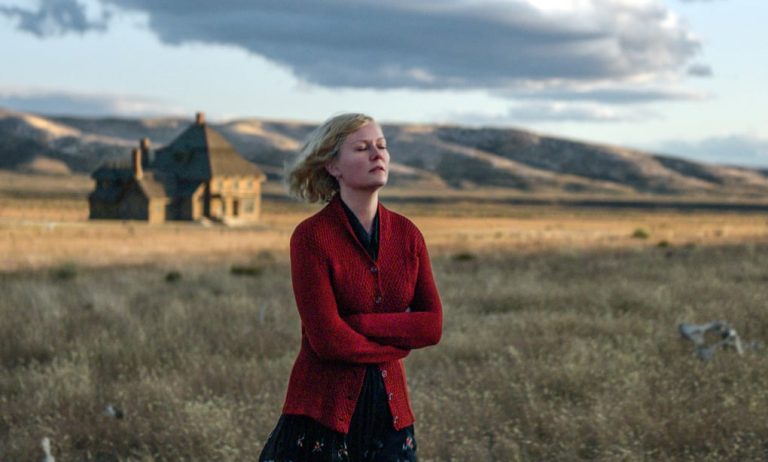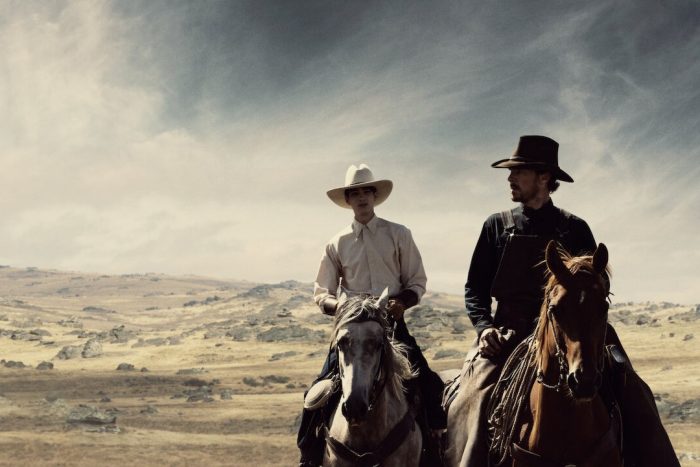Set on a Montana ranch in 1925, Jane Campion’s 2021 dark Western, The Power of the Dog, adapted from Thomas Savage’s 1967 novel of the same name tells the story of a disquieting conflict between a top dog and an underdog that culminates in the tragic death of the former engineered and executed by the latter with clinical precision. It is a thoroughly intriguing and unsettling psychological drama brewed into a symphony of revenge that steers us through the dark recess of the human mind that gives birth to misdeeds most foul.
The motive of revenge in The Power of the Dog reminds us of the motive of revenge in Shakespeare’s tragicomedy, The Merchant of Venice, which dramatizes a story of revenge forestalled in the nick of time. When Salerio asks the bloodthirsty Shylock why he is obsessed with cutting a pound of flesh (which is worth nothing) from his Christian rival Antonio’s chest, Shylock answers saying, “I am a Jew. Hath not a Jew eyes? Hath not a Jew hands, organs, dimensions, senses, affections, passions; fed with the same food, hurt with the same weapons, subject to the same diseases, healed by the same means, warmed and cooled by the same winter and summer as a Christian is? If you prick us do we not bleed? If you tickle us do we not laugh? If you poison us do we not die? And if you wrong us shall we not revenge? … The villainy you teach me I will execute, and it shall go hard but I will better the instruction.” When placed in the background of these infamous words of Shylock, the spirit of revenge in The Power of the Dog seems to have a striking resemblance to the spirit of revenge in The Merchant of Venice.
The engaging plot of the film begins to unfold as two wealthy rancher brothers, Phil Burbank (Benedict Cumberbatch) and George Burbank (Jesse Plemons) meet Rose Gordon (Kirsten Dunst), an amiable and unassuming widowed inn-owner and her shy, timid, frail and effeminate son Peter (Kodi Smit-McPhee) during one of their cattle drives. The domineering, rough and ill-tempered Phil not only takes an instantaneous aversion to Rose and her son referring to them as the “suicide widow and her half-cooked son,” but also looks down upon them and mistreats them contemptuously. The gentle, kind-hearted, and sympathetic George on the other hand not only looks upon Rose and her son with compassion but also falls in love with her and marries her without the knowledge and permission of his brother.
The die is cast as Phil learns about the marriage. With the loud display of his toxic masculinity, Phil begins to taunt, torment, and intimidate Rose and Peter by means of his different sinister designs. As the mother and the son move into the ranch house of the Burbanks, and Peter begins his study of medicine sponsored by George, Phil’s hatred, anger and animosity towards the duo take a nasty turn. Unable to cope with Phil’s harrowing hostility, Rose becomes dependent on alcohol which she has always been averse to. In the meantime, Phil befriends Peter by teaching him horse riding, weaving for him a lasso from rawhide, and spending much time with him, all of which make Rose become exceedingly anxious about her son’s safety. One is never sure if Phil’s friendship with Peter is genuine, or it is part of his creepy design to eliminate him. This uncertainty makes Rose’s dependence on alcohol worse than before. Peter’s unexpected reciprocation of Phil’s friendship adds fuel to Rose’s anxiety, apprehension and fear.

Peter’s astonishing ability to perceive the distant Montana hills purportedly assuming the shape of a barking dog that so far only Phil and his legendary homosexual mentor, Bronco Henry, were able to perceive, binds Phil emotionally to Peter. In the meantime, Peter not only goes on to win Phil’s trust, confidence, and friendship but also gains a certain degree of power over him.
One day, Peter ventures out into the mountains on horseback all by himself. It is difficult to ascertain whether he ventures out on his own to test and prove his newly acquired riding skill and his sense of independence, or he is forced to do so by Phil for reasons left to the spectator’s imagination and interpretation. During the journey, he comes across a carcass of a cow that died presumably of anthrax. Wearing a pair of gloves, he carefully cuts pieces of its hide and brings them home. After having established certain emotional control over Phil, at an opportune moment, Peter stealthily gives Phil the anthrax-infected cowhide to complete the lasso that the latter has been weaving for the former.

With his bare hands, one of which was accidentally wounded while working on a fence recently, Phil works through the night on the lasso and completes it. However, by the next morning, Phil falls severely ill and is taken to a hospital where he dies. At his funeral which Peter does not attend, the doctor who attended to Phil tells George that in all probability, Phil died of anthrax. While the funeral service of Phil is going on in the church, sitting at home, Peter reads verse 20 of Psalm 22 from The Order for the Burial of the Dead where an underdog prays to God: “Deliver my soul from the sword; my darling from the power of the dog.” The names of Savage’s novel as well as Campion’s film draw their significance from this verse that needs to be understood in the background of the whole psalm.
In fact, the entire Psalm 22 is the prayer of the psalmist, a defenceless underdog, taunted and tormented by his enemies. The desperate cry with which the Psalm opens, “My God, my God, why have you forsaken me?” (22:1) announces his intense sense of abandonment by God. While articulating his personal feelings, the psalmist gives expression to the feeling of abandonment of all believers when faced with troubles that are beyond their control. What renders this opening verse the significance it enjoys today is the fact that in spite of being the Son of God, while awaiting his death on the cross, at a moment of extreme agony, Jesus undergoes a similar feeling of abandonment and cries out to God the Father borrowing the same desperate cry of the psalmist.
One day, Peter ventures out into the mountains on horseback all by himself. It is difficult to ascertain whether he ventures out on his own to test and prove his newly acquired riding skill and his sense of independence, or he is forced to do so by Phil for reasons left to the spectator’s imagination and interpretation. During the journey, he comes across a carcass of a cow that died presumably of anthrax.
After giving vent to his feeling of abandonment, the psalmist who is “scorned by everyone, despised by the people” (Ps 22: 6) goes on to recount his experience of being tormented by his fellow human beings saying, “All who see me mock me; they hurl insults, shaking their heads” (Ps 22: 7). Biblical scholars argue that the agony of Jesus is anticipated in the recounted experience of the psalmist. They see a similarity between the experience of the psalmist and the experience of Jesus in verse 18 which says, “They divide my clothes among them and cast lots for my garment.” The Psalmist goes on to express his sense of the dread of his tormentors in powerful animal metaphors. “Many bulls surround me; strong bulls of Bashan encircle me. Roaring lions that tear their prey open their mouths wide against me … Dogs surround me, a pack of villains encircles me; they pierce my hands and my feet” (Ps 22: 12-13; 16). Subsequently, he cries out to God for deliverance saying, “Deliver me from the sword, my precious life from the power of the dogs. Rescue me from the mouth of the lions; save me from the horns of the wild oxen” (Ps 22: 20-21). He concludes with his praise of God in gratitude for His divine protection.
The film opens with the voice-over of Peter referring to his and his mother’s helplessness and vulnerability owing to his father’s unexpected death as well as his responsibility to protect his mother. Later in the film, Peter tells Phil that his father, a doctor by profession, had hung himself leaving his wife and son vulnerable to the bleak world around them. With the entry of the Burbank brothers into their lives, they cross paths with Phil Burbank who pushes them against their helplessness and vulnerability beyond endurable limits comparable very much to the situation of the underdog in Psalm 22.
The underdog in the Psalm goes on to find solace in God’s protective care. Jesus whose life has a striking resemblance to the life of the underdog in the Psalm surrenders to the will and plan of his heavenly Father and finds solace. As a subversion to the trajectory of the psalmist as well as of Jesus, Peter, the underdog in the film, assumes the role of a coldblooded biting dog that strikes mercilessly at the most opportune moment to eliminate the menace of the savage dog (Phil) to care for the underdog (his mother) still under his supposed care.
View Album: The Mighty Himalayas
In the last shot of the film, Peter is seen standing at his window watching George and Rose return home after Phil’s funeral and kiss each other in the courtyard. As Peter turns towards the camera with a contented smile and walks away, one wonders whether what makes him smile is his secret satisfaction of having played God — for Yahweh says in Deuteronomy 32:35, “It is mine to avenge; I will repay.” The spectators are certainly left with the unnerving feeling regarding the bite of the underdog that as depicted in the film can be more deadly than the bark and rub of the top tog. While the Shylock in Peter seems to be asking, ‘if you wrong us shall we not revenge?’ He also seems to be stating with a smile that ‘the villainy you teach me I will execute, and it shall go hard but I will better the instruction.’ The Power of the Dog is a cinematic meditation on crime, revenge and above all evil.
The twelve nominations that the film has received at the 94th Academy Awards is a testimony to the cinematic excellence with which this symphony of revenge has been adapted from the novel onto the screen. Each of these nominations calls for a separate discussion at varying levels of the art and craft of the making of the film.
Images courtesy: Netflix, Britannica.
Sacaria Joseph is an Assistant Professor in the Department of English at St. Xavier’s College, Kolkata. Having pursued his undergraduate studies at St. Xavier’s College, he furthered his academic journey by obtaining a Master of Arts degree in English Literature from Pune University, a Master of Philosophy from Jadavpur University, Kolkata, and a PhD from Visva-Bharati University, West Bengal. In addition to his academic pursuits, he writes on a wide array of subjects encompassing literature, philosophy, religion, culture, cinema, politics, and the environment.








